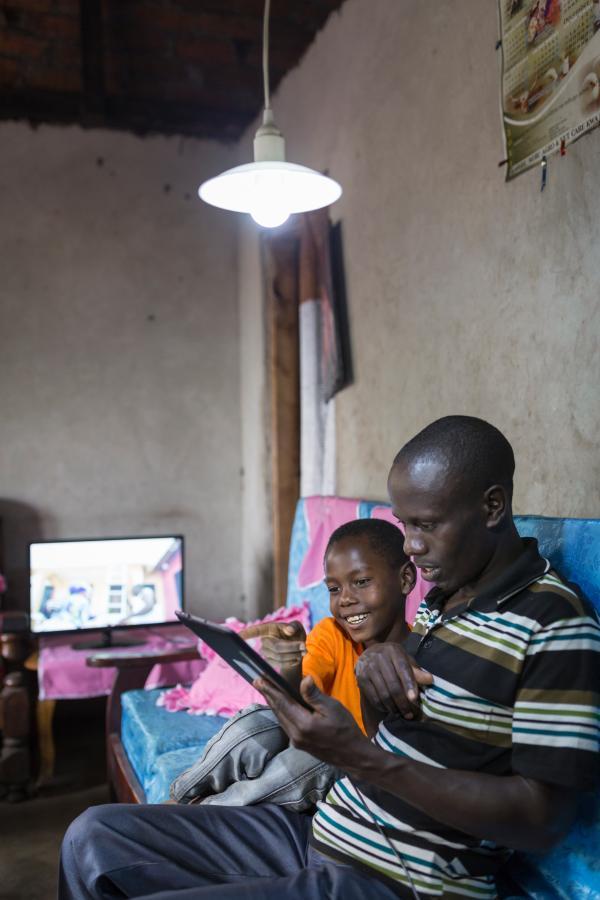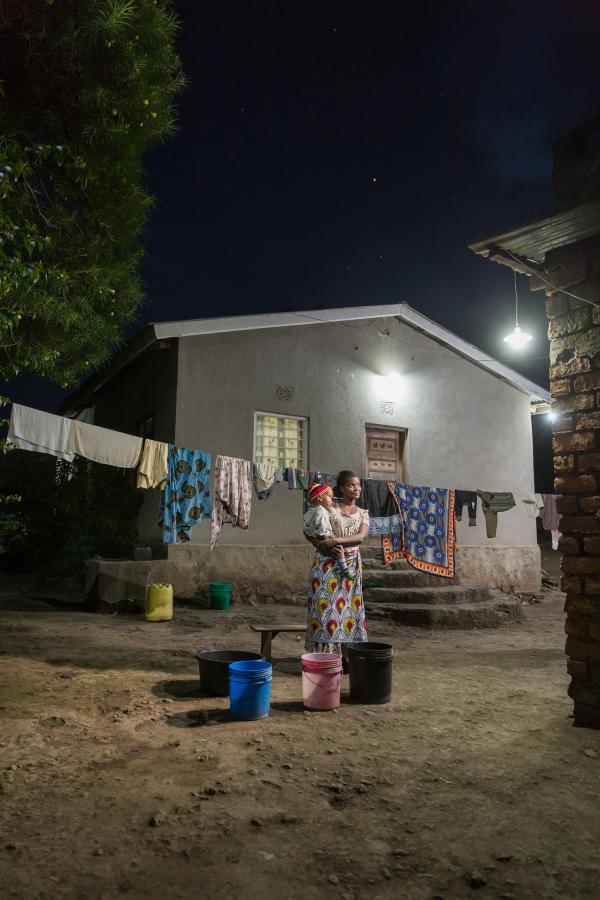A scaled up off-grid model transforms access to solar power in rural Africa
Around 600 million people lack access to electricity in sub-Saharan Africa, despite some progress over recent years, and the strong growth of the continent’s off-grid solar sector during the last decade.
In Benin, only 40% of the population has access to electricity, with a significant disparity between urban (70%) and rural areas (18%), resulting in about five million people without access to electricity. Only 10% of households are currently using off-grid solar products.
“More than one million households don’t have access to modern and sustainable energy in Benin alone,” says Hendrik Engelmann-Pilger, a senior economist in the European Investment Bank’s energy transition programmes division. “These households rely mostly on kerosene lanterns, candles, flashlights and generators for lighting and cell phone charging. These solutions are expensive, polluting and often inefficient.”
Clean and sustainable energy sources like solar devices and solar home systems for off-grid households have high up-front costs that present a challenge to low- and medium-income households. ENGIE Energy Access, the leading pay-as-you-go and mini-grids provider in Africa, is offering a solution.
With pay-as-you-go, customers can make small payments to unlock the system for a day or week of usage at a time, until they have paid the full price and the systems are permanently unlocked. This payment solution makes the affordability of basic and modern electricity more accessible. Customers don’t have to bear upfront the full cost of the solar system, including solar panels, battery storage, lighting and other optional appliances. People in Benin will be able to repay the cost of the equipment over years at less than 20 cents a day.
Ultimately, the increased provision of reliable and affordable energy will reduce exposure to indoor pollution from current kerosene use, provide much better lighting at lower cost, enable cell phone charging and powering small appliances.

“Thanks to the use of digital tools and the strong penetration of mobile money in sub-Saharan Africa, ENGIE Energy Access sells access-to-energy products to our customers on credit to make them affordable,” says Gilian-Alexandre Huart, chief executive of ENGIE Energy Access.
The European Investment Bank signed a loan of €10 million to ENGIE Energy Access Benin, a subsidiary of ENGIE, to support the deployment of 107 000 high-quality solar home systems in Benin. This will open up access to clean energy for an estimated 643 000 people in the West African country. The Africa-EU Partnership aims to extend access to modern energy services and expand the use of renewable energies in Africa.
The new Benin cooperation follows the EIB’s previous support for ENGIE to deploy off-grid solar power in Uganda.
“Our partnership with the European Investment Bank in Benin will provide ultra-affordable pay-as-you-go systems to people in villages across the country, giving access to clean solar energy and financial empowerment,” says Huart.
ENGIE is currently providing decentralised electricity to more than 8 million people in nine countries through solar home systems and mini-grids.
Off-grid solar power tackles energy distribution challenges in Africa
Off-grid solar energy solutions, such as solar home systems, offer immediate access to affordable, clean and reliable electricity in places where grid or mini-grid connections aren’t economically or technically feasible yet.
It tackles the “last-mile” distribution problem of bringing critical goods and services (such as lighting, mobile phone charging, radio, TV and refrigeration) to remote, rural communities using solar powered technologies.

Off-grid solar power devices can also lead to a significant reduction in household air pollution by removing kerosene lamps from the picture, reducing health issues and accidents.
“Ultimately, this new initiative will provide economic, social, education and health benefits for households and micro-entrepreneurs who cannot be connected to the national electricity network,” says Romain Constant, an investment officer at the European Investment Bank. “The proposed operation will also promote private sector-led activity, economic diversification and job creation in Benin.”
- Read about Finance in Africa
